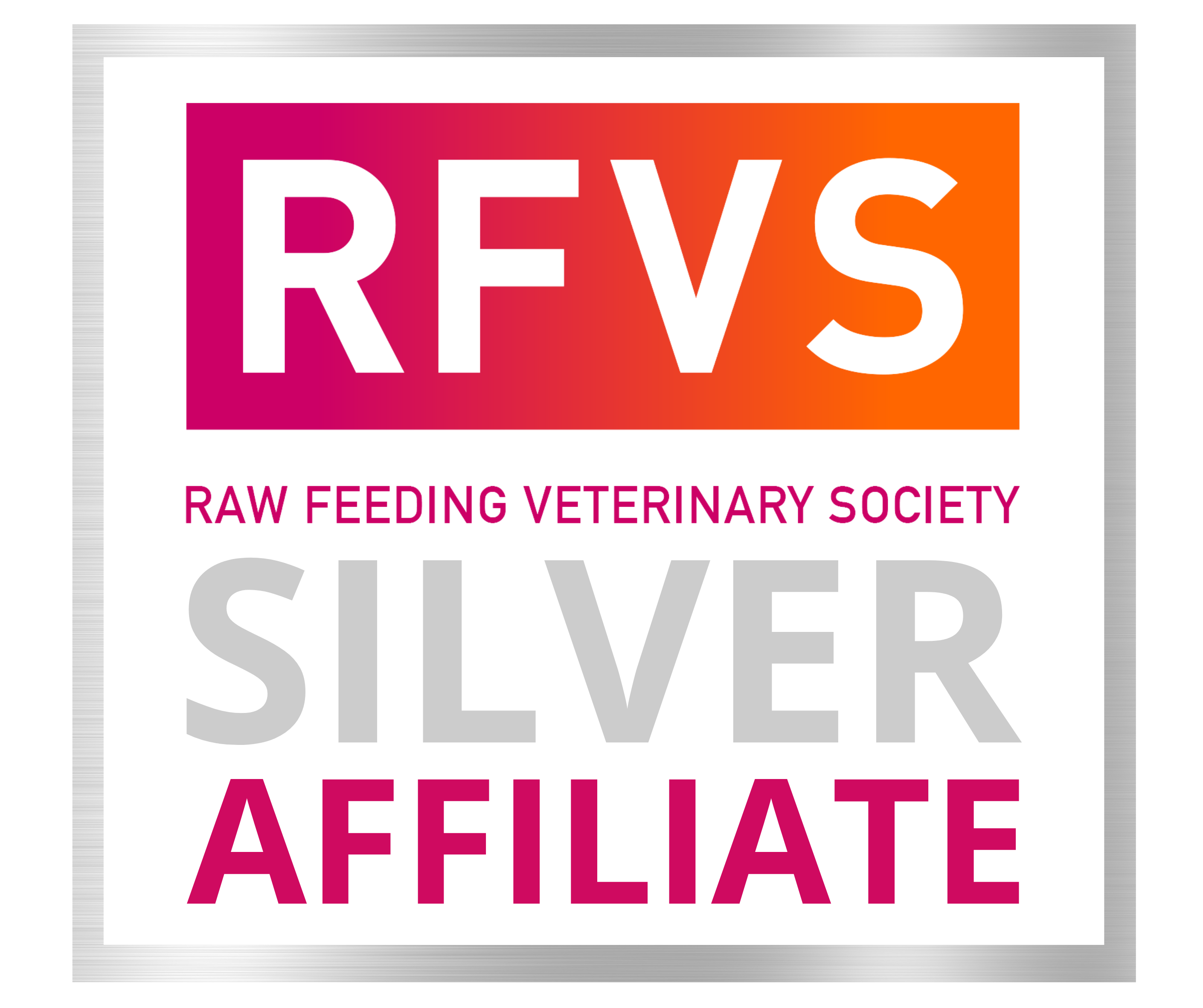Raw Food in Supermarkets & Pet Stores
RAW BONES
Bones should be meaty; soft enough to digest (not large load-bearing bones); and big enough that your pet has to chew their way through it, rather than being able to gulp or swallow it whole.
Supermarket bones tend not to be very meaty, and are usually load-bearing bones (such as femurs - thigh bones - from a cow). These bones are very hard - they can break teeth, and may be difficult to digest.
PRESERVATIVES: SULPHITES & NITRATES
You can read our full, referenced article on the dangers of preservatives in pet food Preservatives.
SULPHITES IN MEAT PRODUCTS INTENDED FOR HUMAN CONSUMPTION
Sulphite preservatives are not allowed in most meat products intended for human consumption. Sausages are an exception to this, however the allowable levels are tightly regulated.
The NZ Ministry of Health warns of potentially “serious reactions” when sulphites are added to meat products.
SULPHITES IN MEAT PRODUCTS INTENDED FOR PET CONSUMPTION
The NZ Pet Food Manufacturers Association sets its own voluntary code of practice regarding the composition of pet food – so the addition of preservatives is unregulated.
For at least the last two decades, it has been known in the scientific and veterinary community that sulphites cause thiamine deficiency in dogs and cats, yet they continue to be added to pet food.
An Australian study found that almost all pet mince samples tested contained sulphites, most at dangerously high levels. It was also found that the majority of labels failed to declare the preservatives.
WHY ARE PRESERVATIVES ADDED TO MEAT PRODUCTS?
Preservatives are added to create an appearance of prolonged shelf-life, by masking the signs of putrefaction. So a meat product may have started to go off, but the preservative will mask the smell and colour changes.
The World Health Organisation recommends that sulphites not be added to meat products because “they can lead to deception regarding freshness and possible injury from the consumption of tainted meat.”
WHY SHOULD PRESERVATIVES BE AVOIDED?
- Sulphites: Induce thiamine deficiency, and suppress the immune system in a way which promotes asthma and allergy.
- Nitrates: Excessive levels of nitrates in processed pet foods have been an established cause of death in pets in New Zealand
SULPHITES & CATS
Sulphites stimulate a type of immune reaction which promotes asthma – this may be a problem for cats who are susceptible to, or suffering from, feline asthma.
When sulphites lead to thiamine deficiency in cats, a range of clinical signs may present, including: convulsions, hyperaesthesia, and dilated unresponsive pupils. If untreated, deficiency can be fatal.
SULPHITES & DOGS
Sulphite-induced immune reactions leading to allergies and intolerances may be a big problem for dogs who are prone to chronic skin and gut problems.
When sulphites lead to thiamine deficiency in dogs, a range of clinical signs may present, including: anorexia, vomiting, lethargy, CNS depression, paraparesis, ataxia, spasticity, and convulsions. If untreated, deficiency can be fatal.
WHAT IS THIAMINE?
Thiamine (vitamin B1) is an essential nutrient for mammals. Untreated deficiency can be fatal. Carnivores are dependent on a constant dietary supply. Individual variation amongst cats and dogs means that some will need more thiamine than others to avoid deficiency. Meat and organs are naturally high in thiamine.
Factors involved in Thiamine deficiency:
- Low levels of dietary thiamine
- Heating and food processing
- Inactivation of thiamine by sulphite preservatives
- Inactivation of thiamine by enzymes present in some species of fish
- Grains (inactivate thiamine, and raise the requirements of thiamine)
PET FOOD SHOPPING TIPS
Our products do not contain preservatives or additives.
If you are sourcing products elsewhere, we recommend that you read labels AND consider asking the manufacturers for confirmation that their products do not contain preservatives.
Also, check out When You Can't Access Raw Essentials
